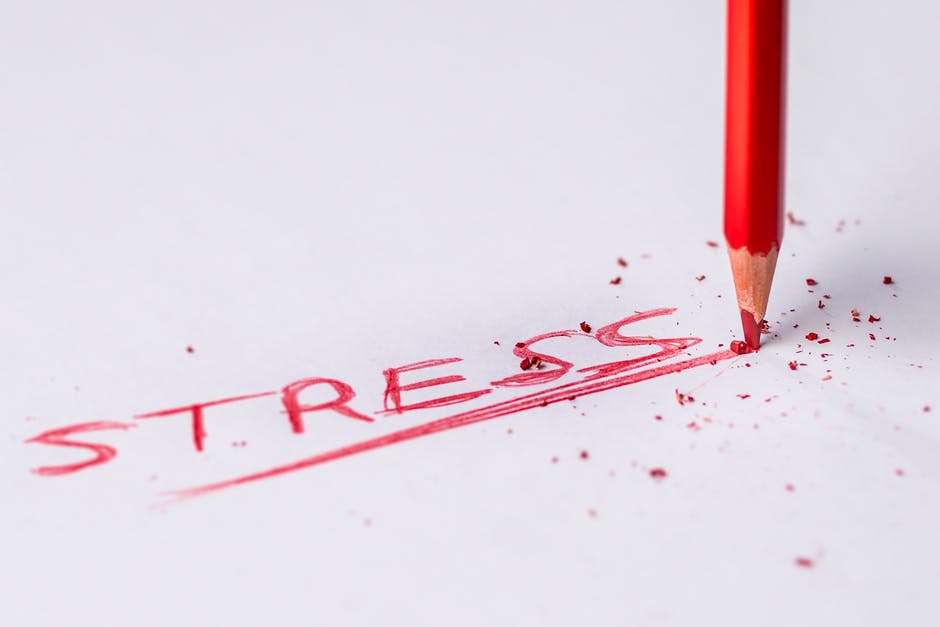Stress Management: 10 Symptoms of Stress in Your Life
Stress is going nowhere. The global prevalence of stress, anxiety, and depression increased by 25% during the first year of the COVID-19 pandemic.
One reason why stress is increasing is the lack of stress management. Many people don’t know what stress is, let alone how they can start managing stress. If you want to figure out how to manage stress, you need to educate yourself on its symptoms.
How can stress make you feel and behave? How can it impact your job performance? What should you do if you have symptoms?
Here are 10 major symptoms of stress to first help you understand the impacts of stress.
1. Agitation
Stress can cause someone to feel agitated. They may become angry at the thing that is making them stressed, or they may become angry at things they don’t normally get stressed about.
Agitation can mean anger, anxiety, or nervous excitement. A person may wring their hands, shake their head, or rock back and forth while they are agitated. An agitated person may seem confused about things, and they may struggle to focus on basic tasks.
2. Constant Worrying
It is okay for someone to worry momentarily about their stress. But constant worrying is a sign that stress is not going away. Someone may worry about one thing and then start worrying about something else, even if that thing is out of their control.
Constant worrying can impede a person’s work performance. They may not be able to perform tasks because they are worried about the outcome. Worry can be a symptom of stress induced anxiety.
3. Racing Thoughts
A person can find it difficult to think clearly while they are stressed out. They may think about many things at once.
Racing thoughts can become external. While someone is feeling or managing stress, they may speak or write quickly. They may not be able to hold conversations or end thoughts.
4. Forgetfulness
Racing thoughts can cause someone to be forgetful. They may be told to do something, but their focus shifts to another topic, and they forget what they were told.
But forgetfulness can occur independently of racing thoughts. For no apparent reason, someone may forget something. They may need notes and reminders from others in order to remember basic things. Forgetfulness can apply to work and personal situations. While someone is stressed out, they may forget to eat or take care of themselves.
5. Low Self-Esteem
Stress can cause low self-esteem as someone blames themselves for what is going on. If someone experiences stress over a long period of time, they may assume that things will not get better, and they may internalize their stress. Low self-esteem can also cause or contribute to stress. Many employees try to prove themselves to their bosses by taking on additional responsibilities. Body image distress can cause stress as someone tries to change the way they look drastically.
6. Avoidance
Stress can cause a person to turn inward. They may shy away from other people so they can figure out what’s wrong or take care of themselves. If someone associates their stress with other people, they may go out of their way to avoid them.
Agitation and low self-esteem can contribute to avoidance behaviors. A person who becomes easily angry with other people or who believes they do not deserve friendships may avoid other people. This can pronounce stress, as someone has fewer resources they can turn to.
7. Fatigue
Stress can lead to fatigue in a few different ways. Some people find it difficult to sleep while they are stressed. They may not be able to fall asleep, or they may wake up in the middle of the night to deal with their stressors. Feeling intense emotions for a long period of time can cause exhaustion, as someone spends hours worrying about different things. Fatigue can lead to difficulty with sleep which leads to more fatigue.
8. Headaches
Some people grind their teeth or extend their necks when they are stressed out. This can pull on the muscles and soft tissues in the head and neck, causing a headache. Stress can produce headaches for no apparent reason. Some people develop tension headaches, which can feel like a band of pressure around the head or eyes. Other people develop migraines, which can cause extreme pain and an inability to see properly.
9. Frequent Illnesses
A 2022 study found that stress can slow and age the immune system. While you are stressed, your brain makes hormones to respond to what is going on. These hormones can affect how immune cells function, preventing them from responding to viruses and bacteria. A person may experience cases of the common cold, flu, and other infections. Some people develop an upset stomach, nausea, or diarrhea, sometimes due to intestinal bugs. Chronic illness can worsen and “flare” with an increase in stressors.
10. Changes in Appetite
Stress hormones can send signals to the kidneys, causing you to pump out hormones that suppress your appetite. Even if you haven’t eaten in a while, you may not feel hungry. Stress can also distract you from eating. Some people may feel they need to focus on work instead of taking a break to eat.
Other people deal with stress by eating. You might use food to comfort yourself or overcome fatigue. If a person fails to manage stress by other means, they may suddenly or overtime gain weight.
Starting Stress Management
Stress is more than what is happening to you now. Stress can be cumulative over time, sometimes the smaller stressors are impacting you and you think that it “shouldn’t bother me”. A phrase we hear often. Just because you think something shouldn’t bother you doesn’t mean your system is not negatively impacted by it.
You can start stress management if you learn about the signs and symptoms of stress. The emotional symptoms of stress include extreme agitation and constant worrying. Stress can impact your mind, causing your thoughts to race and reducing your ability to focus and think clearly as well as impact your memory recall.
Your behavior may change, and you can develop problems with self-esteem and shy away from people. Relationships can be impacted as your ability to communicate with others decreases and your tolerance of the normal ups and downs of relationships is reduced.
Physical symptoms include fatigue, headaches, shortness of breath, racing heart and a weakened immune system, which can all get worse as time goes on.
If you have these symptoms, you can get help through stress management counseling, therapy or coaching that is tailored to help you have a plan to combat the impacts of stress on your life. Stress can lead to burnout which can lead to a variety of negative consequences.
You don’t have to figure it out alone. You can move from a state of surviving to thriving. Center of Balance Counseling offers psychotherapy and counseling in Washington, Oregon and Georgia. We provide Coaching for Stress Management and Anxiety are available nationwide. Contact us today.



